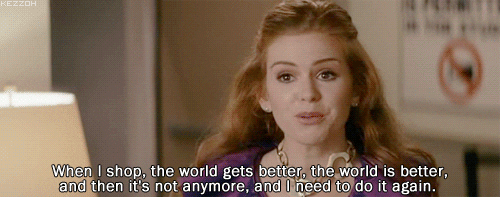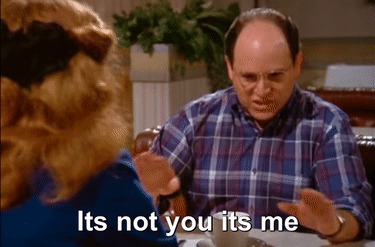Rejected ❌
June 9, 2021
🔥 HOT PODCAST ALERT
Meet the world's fastest growing companies
The fastest-growing companies aren’t who you’d expect. They’re ambitious, scrappy, hopeful, bold, creative, defiant, system-oriented small businesses just like yours. And we’re sitting down with all of them to learn how they do it!

Join us wherever you listen to podcasts Tomorrow, June 10, for the premiere of Fastest Growing Companies.
Every Thursday, Trainual CEO Chris Ronzio is breaking down proven-growth hacks and strategies from today’s fastest-growing teams. That way, you can finally learn the secrets to 10x your revenue and scale your business!
👉 Never miss an episode - subscribe today.
P.S. Let us know what you think of the first episode with a review. We'd love to hear from you!
CLICK AND MORTAR
Why e-commerce brands are going offline
Pretty much everyone took their business online during the pandemic. So, why the heck are e-commerce giants (like Warby Parker, Dollar Shave Club, and Amazon) taking their experience offline? And why now?

Warby Parker, the glasses retailer, is known for its cutting-edge online experience. Their digital "try-on" option allows their customers to see how frames actually look - before checking out online.
But most of their customers don't shop exclusively online. Before COVID, roughly 75% browsed online, then bought in-stores after their eye exam.
Last year, like most companies, their online sales skyrocketed. But as vaccines roll out, in-person shopping is making a strong comeback. And after being cooped up all of last year, most consumers are looking for the best (and safest) in-person shopping experiences.
And Warby Parker's bet is this: if you make that experience a one-stop-shop that's actually fun, you can't lose. But this can't happen just online. That's why the brand is adding 25% more physical locations this year. (This will bring them up to 175 locations nationwide.)
But if your company has always operated online, don't feel like you have to rent a retail space (you don't). Instead, host one-off interactive experiences. Like partnering with a local retailer or taking your experience to a community event. That way, your customers can shop online - but connect with you in person.
IT’S NOT YOU, IT’S ME
Your tactical guide to candidate rejection
A lot of attention goes into getting talented folks through your hiring process. But what happens to all of the great candidates that don't get the job?

Don't think this matters? Think again! Because how you deliver the bad news directly reflects your core values and company culture. Whatever the candidate's experience – good or bad – it will end up on review sites like Glassdoor for future candidates to see.
If you're feeling a bit called out right now, it's time to learn the art of candidate rejection – which comes down to 4 best practices.
- Be kind. When you deliver the news, start off with the positives. AKA give them praise for specific things they did in the process that you valued. Such as for sending thank you emails or doing their research on your company.
- Be transparent. Tell candidates exactly why they weren't picked for a role (for example, not having the right skills or career goals). This way, they can improve their interview skills, and it wasn't an entire bust.
- Be creative. Meaning, don't take the typical route of sending an email or phoning candidates. Instead, send a personalized video message or handwrite a thank you note. Those little things go a long way.
- Be helpful. Continue to be a resource to this person. Meaning, connect them to another company in your network or offer LinkedIn endorsements. Because when you help them, they'll be more likely to become raving fans and advocates of your company to others!
👉 See these tactics in action.
SURVEY SAYS
The 4 customer survey mistakes you probably make
Most companies suck at giving customer surveys! (Or they just don't do it at all.)

But the fact is: customer feedback is crucial to running a successful business. With it, you remove all the guesswork of what your customers actually want. So, you can give them the best experience possible.
And it literally pays to do so. About 86% of customers will spend more for a better customer experience. And on the flip side, 92% of customers won't come back after 2 bad experiences with a company.
So, here's how to get the most out of your customer surveys:
- Ask the right amount of questions (roughly 5 to 9). Because too many questions and people drop out. Too little, and you don't get actionable data.
- Be crystal clear with what you're asking. For example, ask open-ended questions that don't need interpretation. Like "what is one thing we can do to provide a better customer experience?" That way, you get the info you need.
- Show your appreciation - while also making their time worth it! Meaning, send your respondents a $10 gift card to a popular store. Or offer them 10% off on their next purchase as thanks.
- Don't ask too often. For B2B businesses, once a quarter is best practice. But for B2C, take how often your customers interact with you and multiply it by 2. That's how many times you should reach out.
TL;DR
This week's highlight reel
- Shatter the ceiling. The female CEOs on this year's Fortune 500s list just broke 3 records. This includes most women ever to make the list at one time.
- The cookie saga continues. Google plans to let people opt-out of cookies later this year. This will make Android users harder to target with ads.
- Free stuff! Roughly 41% of people want brands to offer vaccine incentives. But 42% are indifferent. Meaning, there's no need to give away free stuff like Krispy Kreme did - but it also won’t be bad for business.




